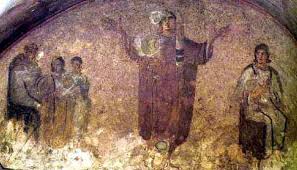 The Act of “Consensus” – Part I
The Act of “Consensus” – Part I
The early church followed what form of government?
Certainly not a democracy, for there were no viable democracies in the first century. The church did not vote on matters with the majority ruling the day.
Certainly not a monarchy, even though Jesus is referred to as King of King. Jesus taught that his kingdom leadership was built on service, not “lording over” others like the gentiles do. His kingdom would be composed of a royal priesthood; a kingdom that would recognize Him as both King and High Priest, but his believers would be a linear, relational priesthood of peer equals in Jesus Christ. There would be no hierarchy or distinctions among them as in secular institutions.
Certainly not a dictatorship, for the Roman Caesars vividly displayed the ruthlessness of such a structure. The “laying down of one’s life” rather than the taking of another’s life seemed to be rule of thumb in Jesus’s kingdom. “This is how we know what love is: Jesus Christ laid down his life for us, and we ought to lay down our lives for our brothers and sisters.” (I John 3:16) In fact the gospel takes it farther, “But God demonstrates his own love for us in this: While we were still sinners, Christ died for us.” (Romans 5:8) Laying down your life not for just your own, but also outsiders is a pillar of the Christian faith.
If the Church was birthed in a Middle East, Westernized world of kings, Caesars, ruthless dictators, why did they not just make Peter the Pope and the Apostles the Ruling Council of Lead Elders to micromanage this new organization. The answer is simple. The church is not an organization. It is a living organism. Man directed it towards becoming an organization and later an institution. It does not have to follow Robert’s Rules of Order, just Jesus’ unconditional love by worshiping the Father and laying down your life for your brothers and sisters in Jesus.
 If not an organization, then how did they govern themselves as an organism? Another simple answer: through consensus in the Holy Spirit. They learned to listen and be obedient to the Holy Spirit. When he speaks, he speaks in one voice, the voice of God, that brings unity. He reveals only what Jesus wants, and Jesus reveals the heart of His Father. The three speak as one in unity.
If not an organization, then how did they govern themselves as an organism? Another simple answer: through consensus in the Holy Spirit. They learned to listen and be obedient to the Holy Spirit. When he speaks, he speaks in one voice, the voice of God, that brings unity. He reveals only what Jesus wants, and Jesus reveals the heart of His Father. The three speak as one in unity.
When the Holy Spirit spoke, the Church did not debate about what He said, they just obediently followed it. They did not write position papers, or create dogma, or write doctrinal statements, etc., they just were obedient and followed it. God could speak through any believer, and often through several, yet his Word, his message, was always the same, bringing unity and clarity. All were in agreement, “in one accord”, in consensus. No debate, no dialogue, no critiquing, no criticizing, no theologizing, only faithful obedience! All moved ahead in the same direction because they had consensus on every matter when the Lord spoke to them.
Let’s look over the next few blogs on how this consensus worked, how effective it really was, and how the church has wondered away from that model into the hierarchal models it practices today. Finally let’s examine how we can “revive” the spirit of consensus back into the Church.